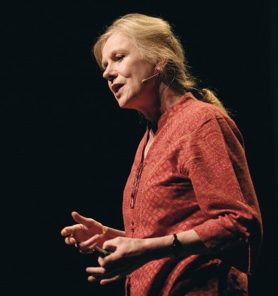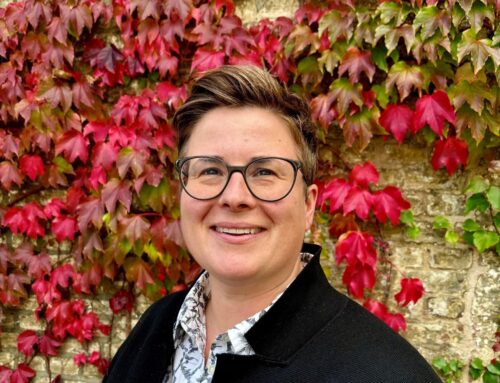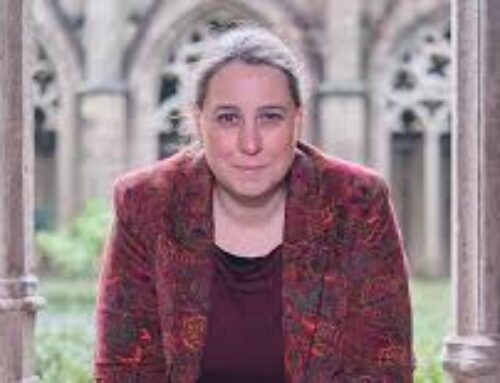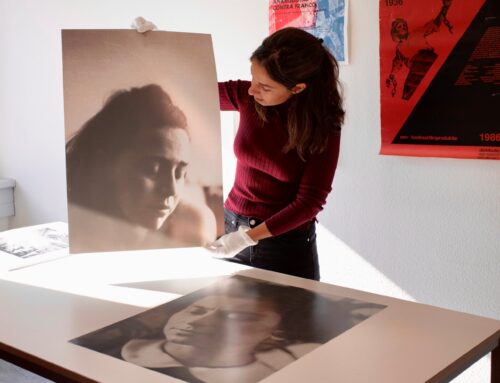 Prof. dr. Frances Gouda (1950 – 2019)
Prof. dr. Frances Gouda (1950 – 2019)
Professor emeritus in Gender and (Post)Colonial History, Department of political science, University of Amsterdam
We are shocked and deeply saddened to have learned that our dear colleague, friend and NOG staff member Frances Gouda has passed away.
Life is an unfoldment, and the further we travel the more truth we can comprehend. To understand the things that are at our door is the best preparation for understanding those that lie beyond. – Hypatia
Frances Gouda completed a degree in education in 1971 at the Rijkspedagogisch Academie in Utrecht. She then moved to the US where she earned her BA, MA and PhD degrees in history from the University of Washington in Seattle. Consequently, she taught at Wellesley College (Wellesley, MA), the American University and George Washington University in Washington, D.C. In 1999 she returned to the Netherlands as professor in Gender and (Post)Colonial History at the Belle van Zuylen Institute for Comparative Gender and Multicultural Studies and later in the political science department, both at the University of Amsterdam. From 2014-2016 she served as director of the Gender and Women’s Studies Program at Bowdoin College (Brunswick, ME).
Professor Gouda held visiting positions at the Harvard Center for European Studies (1983-84; 2013-2014) and the Woodrow Wilson Center for International Scholars (1990-1991). She received grants from the Social Science Research Council, Harry Frank Guggenheim Foundation, American Council of Learned Societies, Fulbright Scholars Program, European Science Foundation, Rockefeller Archives Center and American Philosophical Society.
Gouda’s early work explored the social and intellectual history of nineteenth-century France and the Netherlands, on which she published Poverty and Political Culture: The Rhetoric of Social Welfare in the Netherlands and France, 1815-1853 (1994). Gouda is well-known for her research covering the Dutch colonial history of Indonesia, where her parents spent several years prior to World War II: ‘[…] My parents’ short stint in the Dutch East Indies left an indelible mark on their lives and, indirectly, on their four daughters’ (Gouda 1995: 11). Reflecting on her childhood memories of adoring pictures of her attractively tanned parents in colonial Sumatra she wrote:
Now that I am an adult and historian who has tried to think seriously about the distinctive nature of twentieth-century Dutch colonial culture in the Indonesian archipelago, I am both puzzled and slightly embarrassed, once in a while, by my failure to notice the almost total absence of Indonesian faces in the family photographs I poured over during childhood. How could I be so blind? Why didn’t I ask specific questions about baboe Siti, or about the other servants [….] within my parents’ household? (1995: 12-14)
Her recent research delved into medical history and public health problems in the Dutch East Indies and other colonial societies in Asia during the first half of the twentieth century.
Trained in the US as a postcolonial feminist, Gouda was ahead of the game. She was critical towards institutionalized masculinity and whiteness within the University of Amsterdam. She cheered for what she called the new generation of third wave feminists within the Amsterdam Research Center for Gender & Sexuality (ARC-GS) and the Amsterdam Institute for Social Science Research (AISSR) more broadly. Over the years she taught the BA introductory course Political History and a variety of courses on gender, ethnicity and postcolonial history in the BA minor Gender & Sexuality, the MA Gender, Sexuality & Society and the Research Master Social Sciences. Students enjoyed her colorful and rich lectures, filled with lively cross references to her own work and to that of her colleagues and friends across the globe. As a great story teller, she used personal anecdotes to great effect. An example of class struggles among feminist academics was how she and her friends were accused of doing too much ‘wine and cheese’, while the movement needed a ‘beer and peanuts’ mentality. At the prestigious women’s college Wellesley, she and her cohort of young female professors were criticized by students’ parents for wearing hippy outfits with clogs. She donned them with all the more pride.
Gouda was a generous colleague and mentor. There was always tea in her cozy office with batik table cloths, which she brought from Indonesia. It was a space that she shared with students and visiting colleagues or whoever was in need of a quiet space to work. She regularly hosted potluck parties at her home, to which she invited a mix of her students, colleagues, neighbors and old friends. She excelled at making transatlantic connections to provide opportunities for early career scholars. After her retirement, Gouda moved to a beautifully restored historical house in Franeker, Friesland. She tended to both her ceaseless intellectual pursuits and the Sissinghurst-style garden she had created.
We will miss Frances’ intellect, glamorous phrases and friendship.
On behalf of the Amsterdam Research Center for Gender & Sexuality
Liza Mügge, director
References
Gouda, Frances (1995) Dutch Culture Overseas: Colonial Practice in the Netherlands-Indies, 1900-1942. Amsterdam: Amsterdam University Press.






